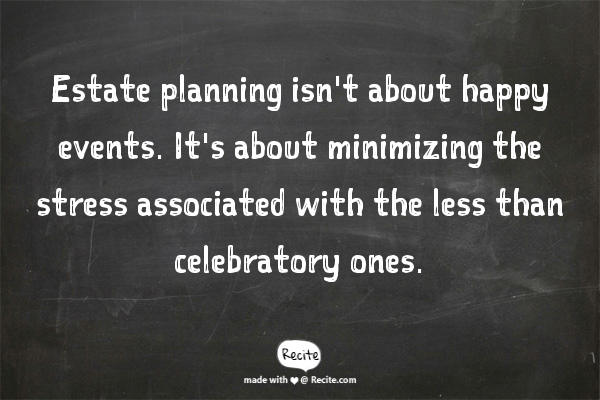
You work hard for your money in life. Why let it get caught in probate when you die? Here are common mistakes even the financially savvy make when it comes to estate planning.
Thinking estate planning is only for the wealthy. The term “estate” tends to have a connotation that conjures images of old money and family homes in Nantucket. But in legal terms, your “estate” is anything you own when you die. That can be personal property, like furniture, a car, or jewelry. It can be intangible property, like your retirement and bank accounts. It can be your home, or any property you have ownership interest in.
If you don’t take steps to legally finalize your estate plan before you die, your family could temporarily lose access to any of your property (that does not include a joint owner or state a beneficiary) to probate court.
The probate process is mostly a clerical one, but it could take several months to resolve. You can take steps to avoid probate with proper estate planning. A revocable living trust, for example, will allow survivors to bypass probate court for any of your assets that can’t be owned jointly, or allow you to specify direct beneficiaries. But you have to legally establish it before you die.
Keeping your plans secret. Once you’ve prepared an estate plan with a lawyer, the law firm will hold a copy of the documents on file. But they might not be in business forever. The lawyer could die. You might move to several states between the time you prepare the legal documents, and die. Don’t assume you can walk away from your involvement with your estate plan just because you’ve finalized the legal aspect of it.
Once you have planned the details of your estate, let the heirs you’ve designated in your estate documents in on your plans. Ideally, you’ll provide them with a notarized copy of your estate planning documents, and the contact information for the law firm you worked with to finalize them. Some law firms charge a nominal fee to file official estate planning records with the county courthouse. But it could be money well spent, simply for peace of mind that your wishes (and money) will be handled as you intend.
Not planning for living. No one wants to think about being incapacitated or unable to care for themselves, but estate planning isn’t about happy events. It’s about minimizing the stress associated with the less than celebratory ones. Your estate plan needs to include what will happen if you or your spouse come upon the the worst of scenarios, including events that require hospitalization or long-term private medical care, or someone to make decisions about the future on your behalf.
Not making plans for life insurance payouts. Life insurance proceeds are normally included in your estate when you die. But unless you plan appropriately with a trust, that money can be subject to probate.
